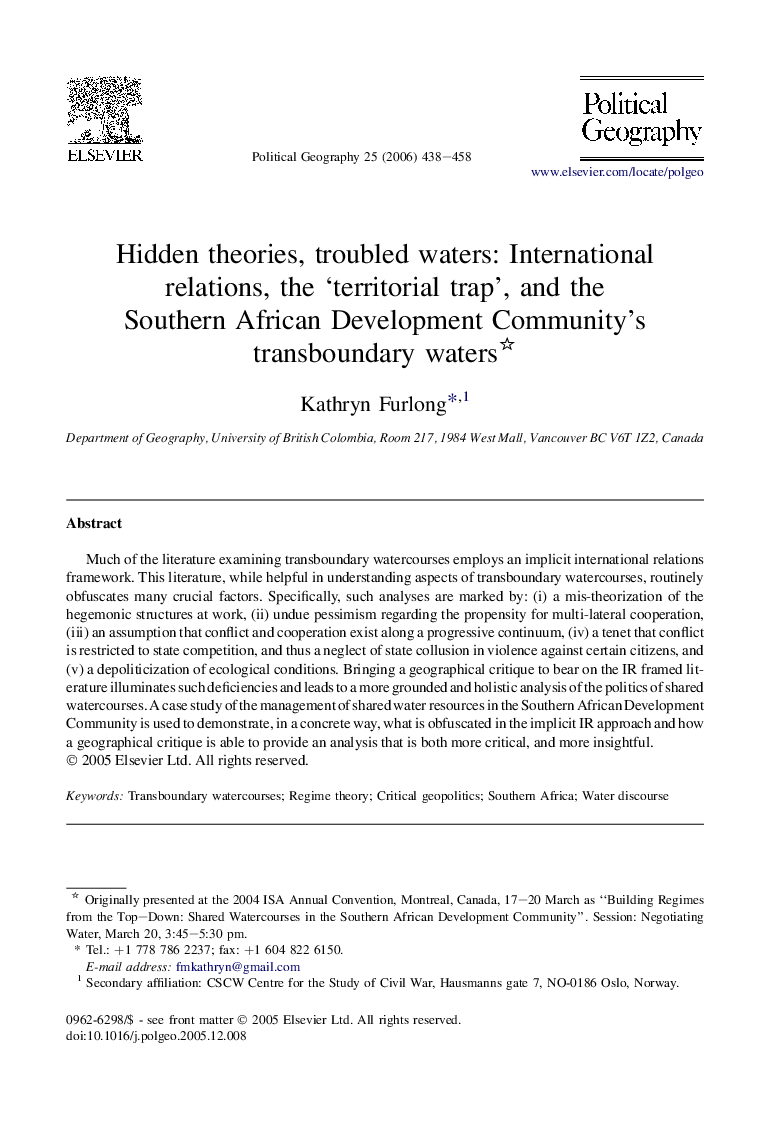| Article ID | Journal | Published Year | Pages | File Type |
|---|---|---|---|---|
| 1062446 | Political Geography | 2006 | 21 Pages |
Much of the literature examining transboundary watercourses employs an implicit international relations framework. This literature, while helpful in understanding aspects of transboundary watercourses, routinely obfuscates many crucial factors. Specifically, such analyses are marked by: (i) a mis-theorization of the hegemonic structures at work, (ii) undue pessimism regarding the propensity for multi-lateral cooperation, (iii) an assumption that conflict and cooperation exist along a progressive continuum, (iv) a tenet that conflict is restricted to state competition, and thus a neglect of state collusion in violence against certain citizens, and (v) a depoliticization of ecological conditions. Bringing a geographical critique to bear on the IR framed literature illuminates such deficiencies and leads to a more grounded and holistic analysis of the politics of shared watercourses. A case study of the management of shared water resources in the Southern African Development Community is used to demonstrate, in a concrete way, what is obfuscated in the implicit IR approach and how a geographical critique is able to provide an analysis that is both more critical, and more insightful.
